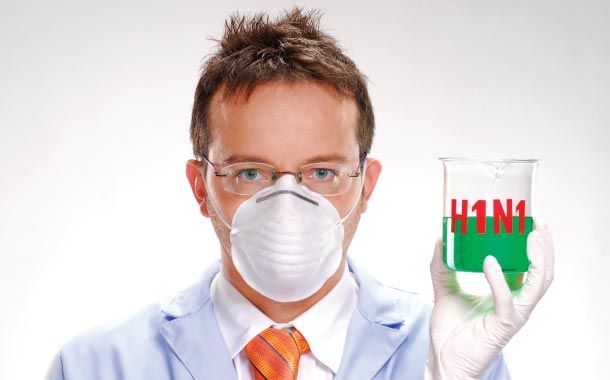Recent news of Sonam Kapoor contracting the Swine Flu has left most of us worried. The Swine Flu virus, H1N1 affects the respiratory tract of pigs causing barking cough, nasal secretions and decreased appetite in them. This virus gets transferred from pigs to humans via inhalation or ingestion of H1N1. Studies have shown that consumption of pork doesn’t ingest the virus. Symptoms of Swine Flu are similar to common cold and high fever. In case of any symptoms, it is advisable that you visit a doctor at the earliest and get yourself tested.
However, there are several ways to avoid the virus. In the interest of our readers and travellers, we have compiled a list of precautions that will help avoid the Swine Flu. It is always better to be safe than worry. Here are some tips to avoid Swine Flu while travelling.
1. Wear a mask
Since Swine Flu is air-borne, using surgical masks acts as a precaution from contracting the virus. It might look shady and you might be a victim of some awkward glares, but not Swine Flu at least. It is necessary that your surgical mask fits you tightly. Use disposable ones for best results. In case you are not, make sure that you wash it before every use.
2. Wash hands often
Swine Flu also occurs if you have touched an object contaminated with the H1N1 and then inadvertently ingested it while touching your mouth or eating something without washing hands. So it is necessary that you wash your hands often and make sure that you don’t touch your mouth or consume anything otherwise. In a situation where water is not easily available, use a hand sanitiser and anti-bacterial wipes. These will act as a disinfectant. This tip is useful during long train, bus, car and bike journeys.
3. Get yourself vaccinated
H1N1 vaccination is available at most of the hospitals and clinics. However, it is administered to individuals under high-risk category. The individuals identified under this category are kids under the age of 5, adults over the age of 64, pregnant women, people diagnosed with chronic diseases like asthama, diabetes, cancer, HIV etc. and adults with low immunity that are susceptible to infections. If you do not fall in the aforesaid group, then check whether any medical practitioner can prescribe you the vaccine. These shots may provide you protection for a year.
4. Avoid people infected with cough and cold
Be it your family member or lover, it is better to stay away from people who sneeze and cough. It may be a symptom of common cold or flu, but it is better avoided. You may politely request them to cover their mouth and nose; after all you can’t afford to contract the virus. Same applies, if you are travelling with a complete stranger.
5. Avoid any activity that increase your chance of contamination
We often share food and drinks at office, college, home and other public places. Although we believe in sharing is caring, we don’t believe in spreading viruses. Avoid eating outside, especially street food as it is exposed to a large public.
6. Avoid closed places
It is believed that the circulation of air is restricted and the chances of contracting H1N1 are high. Although this is not a proven premise, measures can definitely be taken.
7. Stay healthy, happy and keep travelling
If you are healthy and have a strong immunity to fight diseases, then nothing should happen to you. Whenever you are travelling, make sure to take the precautions mentioned earlier. Eat healthy, consume a well balanced diet, drink plenty of water, complete your sleeping cycle and stay stress-free.
Recently, lot of messages on WhatsApp suggest that sniffing camphor and cinnamon powder can help fight the virus. This may be hoax and no scientific study supports this premise. During the 2009 Swine Flu epidemic, there were messages asking people to sniff eucalyptus oil. This is mainly because these elements are believed to be antibiotic and air purifiers. We strongly suggest that you follow the aforementioned precautions to stay safe and evade Swine Flu. Prevention is always better than cure.
Author : Winnie Karnik
